On Episode #179 of the PricePlow Podcast, Mike and Ben sit down with Tyrus Sciarra, the high-energy sales dynamo from Sensapure Flavors, at IFT First 2025 in Chicago. Broadcasting from Sensapure's booth (the same location where we recorded our Episode #175 with Solar Foods), this conversation dives deep into the evolving world of flavor science, industry trends, and the passionate career journey of one of the supplement industry's most enthusiastic flavor advocates.
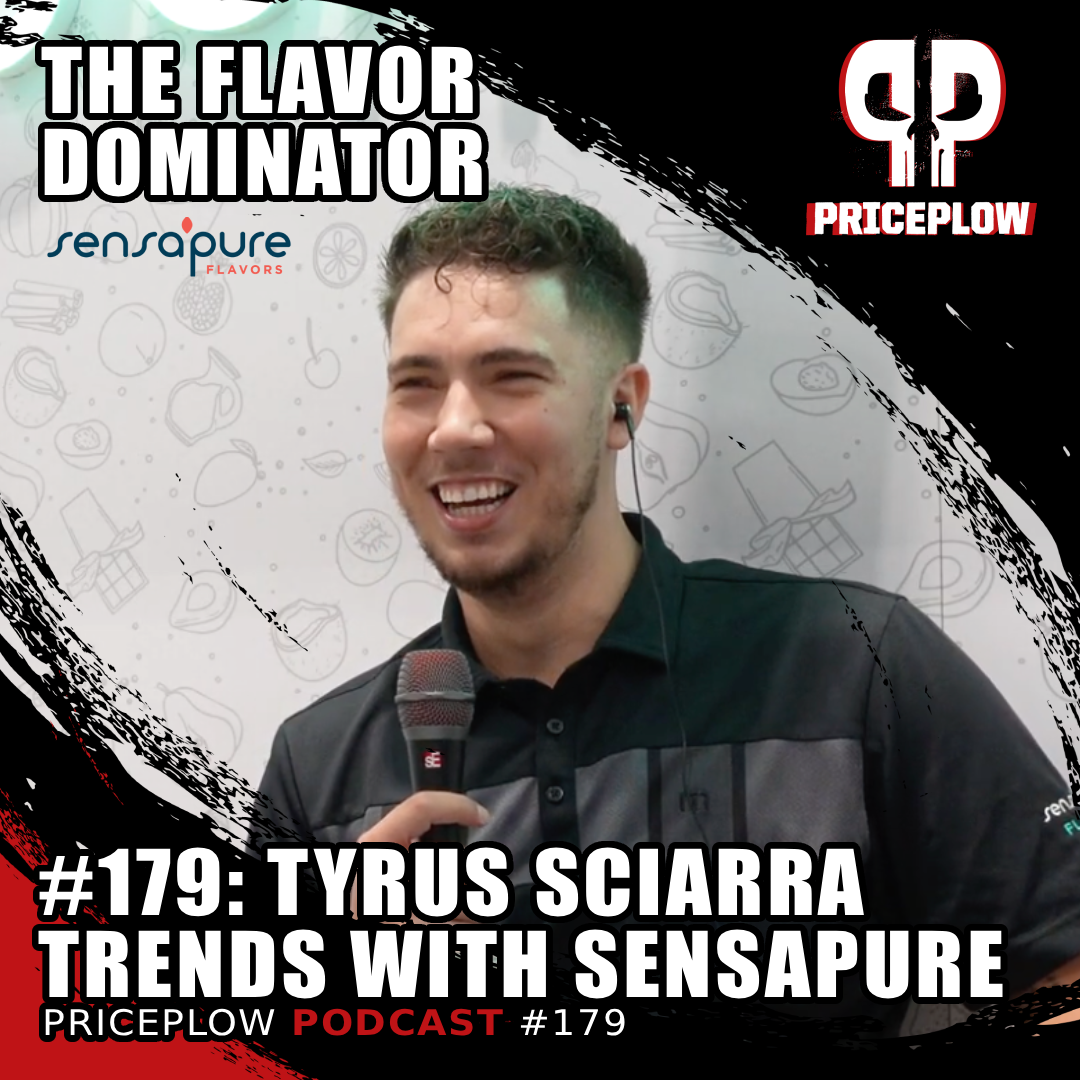
Tyrus Sciarra, Sensapure Flavors' high-energy sales expert, breaks down flavor science, industry trends, and the natural vs. artificial debate on Episode #179 of the PricePlow Podcast, recorded at IFT First 2025.
From Natural to Even More Natural with Sensapure Flavors at IFT First 2025
Tyrus brings his characteristic energy and industry expertise to discuss everything from the natural vs. artificial flavor debate to international taste preferences, sweetener technologies, and the rise of the "clean label" movement. The conversation reveals how Sensapure Flavors differentiates itself through superior customer service, owned manufacturing capabilities, and deep understanding of the sports nutrition market. From his early days at another flavor house to his current role helping brands create flavor systems that drive consumer loyalty, Tyrus shares insights into why flavor isn't just about taste -- it's about building successful brands.
In the Supplement Industry and Don’t Know Tyrus?! You Should!
The discussion also explores current industry controversies, including the Food Babe-driven movement away from natural flavors toward whole food extracts, the ongoing sucralose versus natural sweetener debate, and how American flavor profiles are conquering international markets. Whether you're a brand looking to understand flavor development or simply curious about what goes into making your favorite supplements taste great, this episode provides rare insights into the science and business of flavor creation.
Subscribe to the PricePlow Podcast on Your Favorite Service (RSS)
https://blog.priceplow.com/podcast/tyrus-sciarra-sensapure-flavors-179
Video: Tyrus Sciarra Breaks Down Flavor Science and Industry Trends at IFT First 2025
Podcast: Play in new window | Download (Duration: 1:19:13 — 84.4MB)
Detailed Show Notes: The Science and Business of Flavor Creation
-
0:00 - Introductions: The "Walking Ball of Energy"
Mike opens Episode #179 from the Sensapure Flavors booth at IFT First 2025 in Chicago, introducing Tyrus Sciarra with a challenge: "don't be too Tyrus." The joke immediately sets the tone for understanding Tyrus's reputation as one of the industry's most energetic and passionate sales professionals. Ben shares the legendary story of how Tyrus first "bum-rushed" him at the Mandalay Bay in Las Vegas, emerging from a dark elevator to pitch collaboration ideas with the intensity that has become his trademark.
The origin story continues with their second encounter at the Sports and Active Nutrition Summit in San Diego, where Tyrus intercepted Ben after a beach workout, offering to buy breakfast burritos in exchange for a hearing. That persistence paid off, leading to collaborations that have included everything from trade show parties to the XPO NRG collaboration that became one of their most successful joint projects.
Tyrus explains his approach to networking and relationship building, describing his "superpower" as connecting people rather than being the smartest person in the room. This philosophy of collaboration over competition has driven Sensapure's growth and reflects broader industry trends toward partnership-based business models.
-
2:00 - Career Journey: From ADM Wild to Sensapure Leadership
Tyrus traces his career path from ADM Wild Flavors, where he discovered his specialty in active lifestyle and nutrition markets. His experience taught him the importance of application skills and consumer-focused product development, but the seven-year innovation cycles at large CPG companies like Kellogg's didn't match his preference for rapid product development and immediate market feedback.
The transition to MANE Flavors provided opportunities to build accounts from zero and develop deep market knowledge, though bureaucratic layers often slowed decision-making. When Shane Howell, now president of Sensapure, approached Tyrus about joining forces instead of competing, the timing aligned perfectly with Tyrus's entrepreneurial ambitions and desire for more direct impact on brand development.
Sensapure's entrepreneurial culture allows Tyrus direct access to ownership and faster decision-making, exemplified by how quickly they could approve collaborations like the PricePlow partnership that had been stuck in bureaucratic layers at his previous company. This agility has become a key differentiator in winning business from brands that need rapid response times and flexible solutions.
-
8:00 - The Flavor Industry Landscape: Service Over Commodity
Tyrus addresses the reality that many flavor technologies have become commoditized, making customer service, reliability, and application expertise the primary differentiators. While flavor libraries may be similar across companies, the ability to understand challenging base ingredients like Cognizin, enfinity paraxanthine, or goBHB and create effective masking systems separates specialists like Sensapure from generalist flavor companies.
The discussion reveals how contract manufacturers often attempt in-house flavoring to reduce costs, but lack the specialized knowledge required for complex sports nutrition formulations. Sensapure's application team, led by experts who understand the intricacies of bitter masking and base interactions, provides solutions that general manufacturing facilities cannot replicate.
Reliability extends beyond flavor quality to consistent delivery and technical support. Brands scaling from one contract manufacturer to multiple facilities need flavor systems that perform consistently across different production environments. Sensapure's approach ensures that flavor ownership remains with the brand, preventing supply chain disruptions and maintaining quality standards during expansion.
-
12:00 - Manufacturing Excellence: Owning the Process
Learn about flavors with Sensapure. Mike and Ben with Scott Zimmerman and Derek Greer of Sensapure Flavors in Episode #149, exploring the art and science of flavor creation in supplements and energy drinks.
The conversation highlights Sensapure's owned manufacturing capabilities, including spray drying equipment for powder flavors. This vertical integration provides quality control and supply chain security that flavor distributors cannot match. When Mike and Ben visited Sensapure's facility for Episode #149, they witnessed firsthand the technical expertise required for consistent flavor production.
Scott Zimmerman, Sensapure's senior flavor chemist, brings nearly 40 years of experience and a background in fragrance development from his father's perfume expertise. This combination creates flavor systems that address both taste and aroma, recognizing that smell provides the first sensory experience when consumers open a product. The meticulous attention to aroma development distinguishes Sensapure's work from purely taste-focused approaches.
The technical discussion reveals how flavor chemistry involves understanding taste receptor interactions and building bitter blockers that prevent undesirable flavor compounds from reaching specific receptors. This scientific approach enables more precise flavor development compared to manufacturers who simply overload formulations with masking agents without understanding the underlying mechanisms.
-
16:00 - Ownership Strategy: Learning from Xtend's Success
Mike references Episode #106 with Mike McCandless, who sold Scivation (Xtend) to Cellucor/Nutrabolt, emphasizing how flavor ownership contributed to the brand's success and acquisition value. McCandless's insistence on owning his flavor systems provided competitive protection and increased the brand's intellectual property value during the transaction.
Nutrabolt's leadership specifically mentioned flavor multiple times during the acquisition discussions, recognizing that Xtend had "cracked the code" in amino acid flavoring where their own C4 Alpha Amino just didn't do as well despite good individual flavor quality. This demonstrates how superior flavor systems can become significant competitive advantages and acquisition assets.
The strategy extends beyond large brands to emerging companies that may start with contract manufacturer flavoring but need to transition to owned systems as they scale. Sensapure provides pathways for brands at different stages, from small companies working through flavor distributors to established brands requiring custom development and exclusive formulations.
-
23:00 - The Natural Flavor Controversy: Beyond Food Babe
Sensapure Flavors demonstrates mastery with their Spring 2025 concept beverages! From paraxanthine-powered energy drinks to post-GLP-1 recovery solutions, they're proving functional ingredients don't have to sacrifice taste.
Tyrus explains the emerging trend of brands removing "natural flavors" from ingredient labels in response to influencer-driven consumer concerns. The Food Babe and similar influencers have created market demand for ingredients that consumers can easily identify and understand, even when the natural flavor compounds are chemically identical to those found in whole foods.
Sensapure has responded by developing "flavors not flavors" systems using whole food components like strawberry juice powder, pineapple juice powder, and fruit extracts. These systems avoid the "natural flavor" designation while providing similar taste profiles, though typically at higher costs and with less flavor intensity than traditional natural flavor systems.
The technical reality remains that natural flavors are extracted from the same sources as whole food alternatives -- strawberries contain 40-60 naturally occurring aroma molecules whether used as natural flavor extracts or juice powders. The difference lies in consumer perception and label transparency rather than fundamental chemical composition or safety profiles.
Mike points out the irony that cinnamon powder contains the same cinnamaldehyde compounds as cinnamon natural flavor, yet consumers perceive the powder as "cleaner" despite potential batch-to-batch variability and lack of standardization compared to professionally manufactured flavor systems.
-
32:00 - Citric Acid Alternatives: Meeting Clean Label Demands
The conversation shifts to citric acid replacement systems, revealing another area where consumer perception drives ingredient innovation despite questionable technical benefits. Traditional citric acid production involves fermentation processes that some consumers find objectionable, leading to demand for alternatives like lemon juice concentrates with equivalent titratable acid levels.
Sensapure has developed citric acid replacement systems that provide similar flavor-enhancing effects while meeting clean label requirements. However, these alternatives typically cost significantly more than standard citric acid while providing equivalent functionality. The premium reflects the additional processing required and lower economies of scale compared to widely used citric acid.
Sensapure Flavors predicts major 2025 flavor trends: Aromatics like elderflower and lavender, exotic fruits, and natural spices lead functional beverage innovation. Plus their new OMVE pilot plant changes the development game.
Mike explains the technical considerations around citric acid purity, noting that fermentation-derived citric acid may contain trace impurities from the production process. However, he argues that molecular citric acid performs identically regardless of source, and that concerns about trace contaminants may be overblown for properly purified commercial grades.
-
37:00 - Cost Analysis: Premium Pricing for Clean Label
Tyrus provides concrete cost comparisons for different flavoring approaches, noting that artificial flavor systems can cost as little as one to two cents per serving, while natural systems typically range from three to ten cents per serving. Clean label alternatives using whole food extracts can reach 15 cents per serving or higher, representing significant premiums for brands targeting natural-conscious consumers.
The cost analysis extends beyond ingredient pricing to consider usage rates. Natural juice powders and fruit extracts often require higher inclusion levels to achieve comparable flavor intensity to traditional flavor systems. A brand attempting to replicate XPO NRG's flavor profile using lemon juice powder might need five times the usage rate, further increasing costs and potentially affecting product economics.
These premium costs must be weighed against target consumer willingness to pay and competitive positioning. Brands serving price-sensitive markets may find clean label alternatives economically unfeasible, while premium-positioned products can justify the additional costs through marketing messages and consumer perception benefits.
-
39:00 - The Sucralose Debate: Performance vs. Perception
The discussion turns to sweetener technologies, with Mike defending sucralose as the superior choice despite industry trends toward natural sweeteners. He argues that every major successful energy drink brand -- Red Bull, Monster, Celsius, Rockstar, Alani, C4, and Ghost -- uses sucralose for good reasons related to taste performance and consumer acceptance.
Ben shares his hands-on experience with Joey Savage learning flavor formulation, describing how they developed systems using both sucralose and NNB Nutrition's SweetVantage. While SweetVantage produced excellent results and represents elite natural sweetening technology, the direct comparison revealed sucralose's superior "robust" flavor delivery that natural glycoside blends cannot match.
Sensapure Flavors turned bright orange air-based protein into delicious salted caramel and chai beverages. When novel proteins change the game, Sensapure makes them taste good.
The comparison extends beyond sweetness to mouthfeel and flavor enhancement properties. Sucralose provides natural bitter-blocking properties and synergistic effects with Ace-K that create full, rounded sweetness profiles. Natural sweeteners often contribute their own flavor notes and potential bitterness that must be managed through additional formulation complexity.
Tyrus notes that brands increasingly request sucralose versions of natural formulations after seeing performance differences. The challenge involves picking target demographics -- natural-focused consumers accept some performance compromises for ingredient philosophy alignment, while mass-market consumers prioritize taste above ingredient sources.
-
47:00 - Sweetener Technology: Understanding Peak Profiles
The technical discussion reveals how different sweeteners provide distinct temporal taste profiles. Sucralose delivers high initial sweetness that gradually decreases, while Ace-K peaks later in the taste experience. This complementary timing creates synergistic effects when used together, providing full sweetness coverage throughout the consumption experience.
Natural sweeteners face different challenges, as stevia glycosides typically provide front-end sweetness while monk fruit contributes tail-end sweetness. However, natural sweeteners often impart their own flavor characteristics and can introduce bitterness at higher concentrations, requiring careful balancing and additional masking technologies.
Salt addition emerges as a crucial flavoring technique, with Tyrus earning the nickname "Salt Bae" at Sensapure for consistently recommending 100-200mg salt additions to enhance flavor systems. Salt provides multiple benefits including astringency reduction, flavor enhancement, and improved mouthfeel, often delivering better results than increased flavor usage at lower costs.
-
50:00 - International Taste Preferences: American Flavors Go Global
Tyrus shares amusing stories about international taste preference differences, including a customer whose "cookies and cream" product actually tasted like Nutella (chocolate hazelnut) and sold successfully in London under the wrong flavor description. These experiences highlight how taste perception varies significantly across cultures and markets.
Finnish company Solar Foods just made protein powder from literal air! Solein® uses microbes that eat hydrogen + CO2 to produce 78% protein with all essential amino acids. It's also already GRAS self-affirmed and in production.
Sensapure's international business focuses primarily on customers seeking American flavor profiles rather than attempting to replicate local taste preferences. Markets like Dubai and Latin America specifically request American-style flavors, recognizing the global influence of US supplement and beverage brands on consumer expectations.
The spice tolerance story reveals how dramatically heat perception varies across cultures. A seasoning project that customers considered "spicy" contained only black pepper, while sensory panel testing with over 100 participants rated the same formulation as barely detectable heat. This demonstrates the importance of understanding target market preferences rather than assuming universal taste responses.
-
54:00 - Trend Prediction: Personalization and Athlete Collaborations
When asked about emerging flavor trends, Tyrus pivots from specific flavor predictions to personalization and storytelling opportunities. Sensapure's partnership with a pro sports agency enables development of signature flavors for athletes, such as Lauri Markkanen's Finnish pear concept incorporating birch oil to reflect his cultural background.
These personalized flavors provide athletes with unique collaboration tools when negotiating endorsement deals with brands like Liquid IV. Rather than standard ambassador relationships, athletes can offer proprietary flavor concepts that differentiate partnerships and provide additional value to both parties.
The personalization trend extends beyond athletics to movies, music, culture, and media, reflecting consumer desires to connect with personalities and stories rather than generic product offerings. Sensapure's creative approach involves developing flavor narratives that resonate with specific demographics while maintaining broad appeal.
-
58:00 - Brand Visibility: Moving Beyond Behind-the-Scenes
The conversation explores Sensapure's evolution from purely behind-the-scenes supplier to visible brand partner. While traditionally flavor companies remain invisible to consumers, strategic collaborations like XPO NRG provide visibility and credibility that benefit both parties. The collaboration generated significant engagement and exposure for Sensapure while demonstrating their formulation capabilities.
Juan Benítez-García and Sini Möttönen from Solar Foods reveal how ancient Finnish microbes and renewable electricity create Solein®, the revolutionary protein made "out of thin air" on Episode #175 of the PricePlow Podcast.
Content-friendly facilities enable customers and partners to create educational content showcasing flavor development processes. This transparency builds trust with consumers increasingly interested in understanding product development while providing marketing opportunities for Sensapure's technical expertise and manufacturing capabilities.
The visibility strategy reflects industry trends toward collaboration over competition. Rather than hoarding trade secrets, successful companies increasingly share knowledge and capabilities to build stronger partnerships and drive collective industry growth. Sensapure's willingness to feature manufacturing partners and provide supply chain transparency exemplifies this collaborative approach.
-
1:02:00 - Industry Evolution: Community Over Competition
Tyrus emphasizes the industry shift from secretive competition to open collaboration, noting that brands increasingly share manufacturing partners and supply chain information. This transparency creates opportunities for knowledge sharing and mutual support that benefit entire industry ecosystems rather than individual companies operating in isolation.
The RTD beverage market saturation demonstrates the importance of distribution strategy over product development alone. Lower MOQs enable easier market entry, but slotting fees and distribution challenges destroy many brands that focus primarily on product quality without adequate sales and marketing infrastructure.
Stick pack formats provide alternative approaches for brands struggling with RTD distribution costs and slotting fees. Working with partners like Simpson Labs that provide 3PL services and direct-to-consumer capabilities enables community building and sustainable growth without massive distribution investments.
-
1:05:00 - Market Education: Energy Drinks and Consumer Awareness
The discussion reveals consumer ignorance about energy drink marketing costs and retail complexity. Slotting fees for convenience store placement can reach millions of dollars, with brands paying premium prices for eye-level positioning while competitors get relegated to less visible shelf positions.
Sensapure Flavors introduces its beverage concepts, including PURE K, PURE M, PURE B, PURE R, and of course their Lemonade flavor in XPO NRG. These drinks mask functional ingredients naturally while delivering bold, refreshing flavors.
Monster's aggressive SKU expansion and celebrity partnerships (Lando Norris) demonstrate the resources required to compete in established beverage categories. New energy drink brands without dedicated sales teams and consumption tracking face nearly impossible odds against established players with comprehensive market support infrastructure.
Mike notes that viral moments provide marketing opportunities but require execution capabilities to capitalize on momentum. Brands that generate attention but lack fulfillment infrastructure miss opportunities to convert viral exposure into sustainable business growth.
-
1:10:00 - Viral Marketing: Lessons from Basic Supplements
The Basic Supplements buffalo chicken wing protein powder example illustrates effective viral marketing execution. The limited production run (500-1,000 units) generated months of continued discussion and international inquiries despite being positioned as an April Fool's joke rather than serious product launch.
Cody's video content creation captured the novelty while maintaining brand credibility. The key insight involves creating memorable experiences that generate organic discussion rather than traditional advertising approaches. Successful viral campaigns require authentic execution that feels genuine rather than manufactured.
The international response demonstrated global interest in American supplement innovation, with distributors requesting access to novelty products that showcase creativity and brand personality. These viral moments can influence brand perception and partnership opportunities beyond immediate sales impact.
-
1:14:00 - Nostalgia and Memory: The Emotional Power of Flavor
Tyrus connects flavor experiences to emotional memory, noting how specific tastes can trigger powerful nostalgic responses similar to music's ability to transport people to specific moments. The "hose water" flavor joke illustrates how childhood experiences create lasting flavor associations that brands can leverage for emotional connection.
Hot Rod movie references and shared cultural experiences provide foundations for flavor development that resonates across demographic groups. Understanding these cultural touchstones enables flavor creators to develop products that trigger positive emotional responses beyond basic taste satisfaction.
The expansion into a 75,000 square foot facility in Lehigh reflects Sensapure's growth trajectory and commitment to capturing momentum in the evolving flavor industry. Owner investment in facility expansion, collaboration opportunities, and brand building demonstrates confidence in long-term market opportunities.
-
1:16:00 - Innovation Opportunities: Functional Flavor Development
Mike proposes transforming clean label flavor systems into semi-functional active ingredients that could earn trademark protection and label placement alongside traditional supplement ingredients. This approach would provide Sensapure with intellectual property assets while offering brands differentiated positioning beyond standard flavor applications.
Citrus fruit extracts provide natural sources of compounds like synephrine and potential GLP-1 support molecules, creating opportunities to develop flavor systems with functional benefits. Patent protection on specific extraction methods or synergistic combinations could establish proprietary market positions.
The concept extends beyond individual compounds to complete functional systems that provide both flavor and health benefits. Brands could market these systems as premium ingredients rather than commodity flavoring, potentially justifying higher margins while providing genuine consumer value.
Where to Follow Tyrus and Sensapure Flavors
- Tyrus Sciarra:
- Instagram: @FlyXFlavorGuy
- Phone: 513-282-5291
- Email: Tyrus.Sciarra@sensapure.com
- Sensapure Flavors:
- Learn about Sensapure Flavors on PricePlow
- SensapureFlavors.com
- Previous Episodes:
Whether you're a brand seeking flavor development expertise or simply curious about the science behind your favorite supplements, Sensapure's approach offers insights into modern ingredient development and market strategy. The future belongs to companies that understand both the technical complexities and human connections that drive successful products.
Thanks for hosting us at IFT First, Sensapure Flavors!
Subscribe to the PricePlow Podcast for more conversations with industry innovators and technical experts who make the supplement industry work!



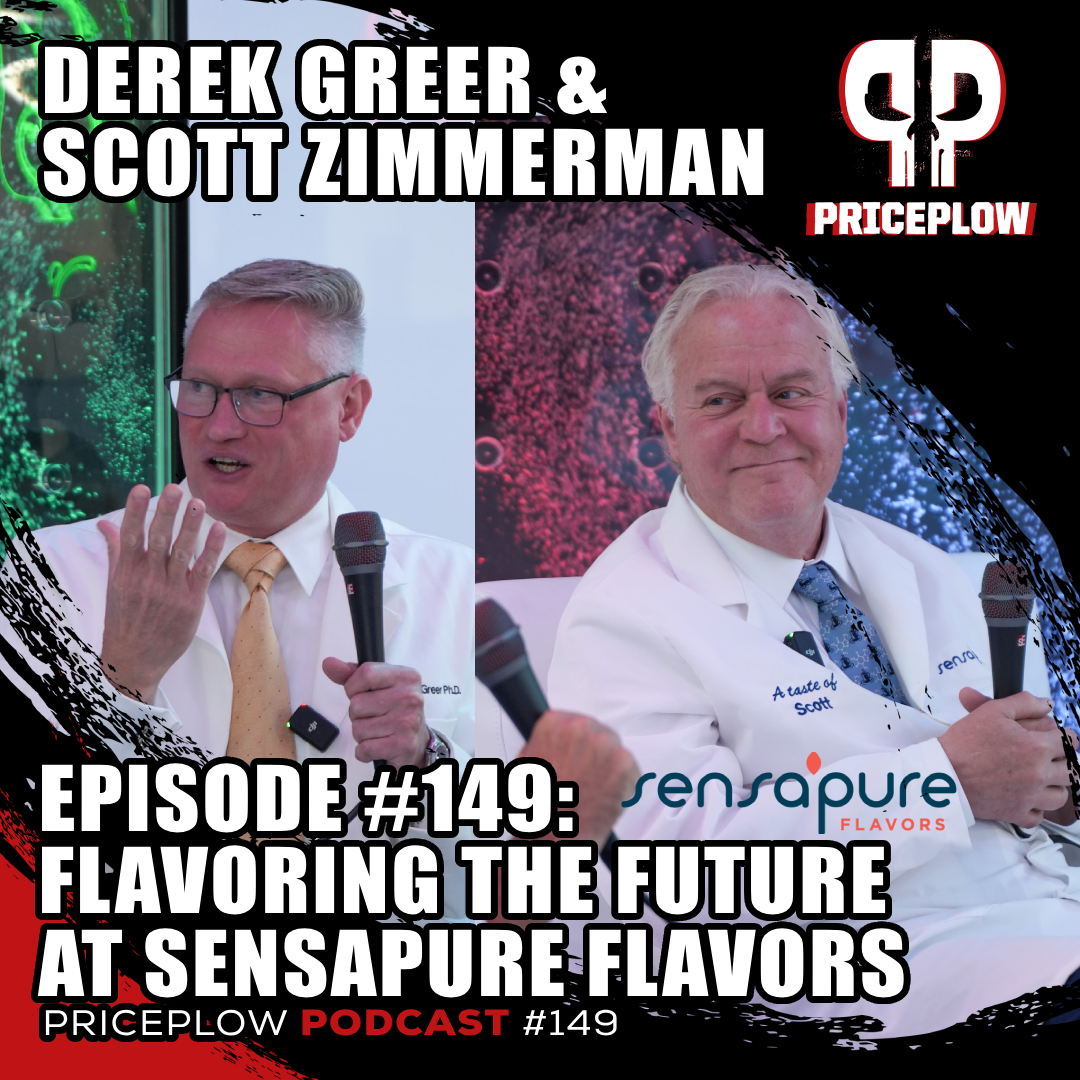
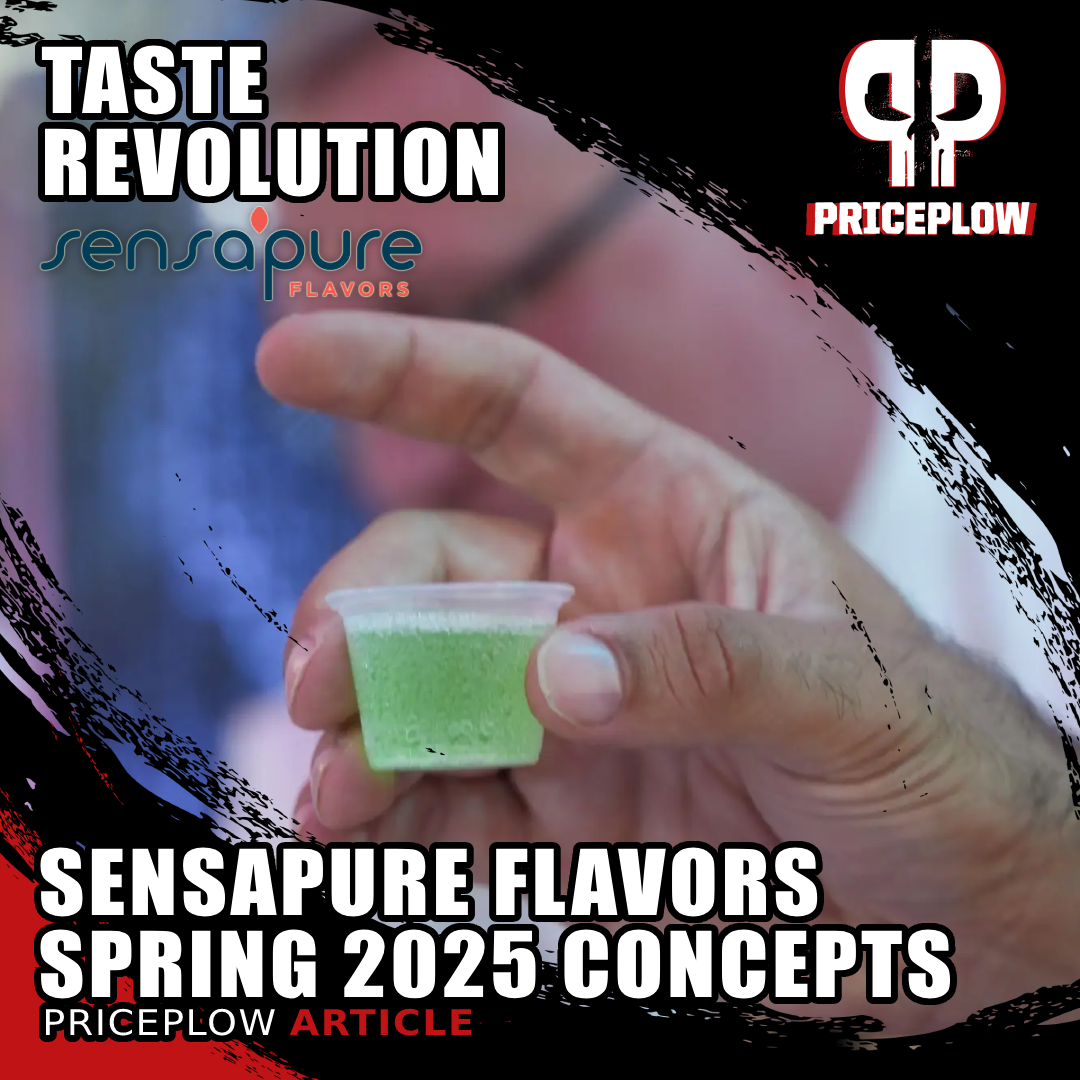
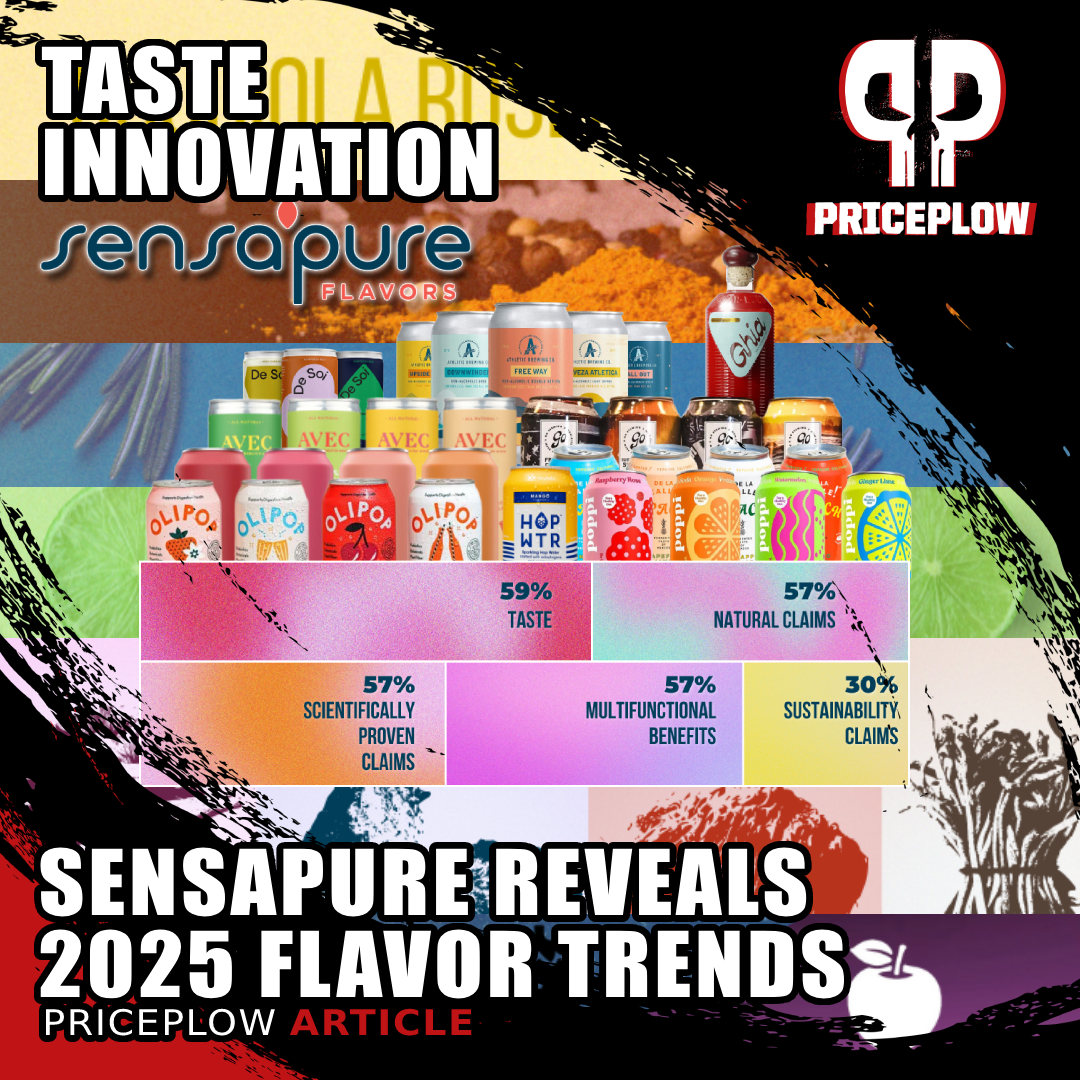
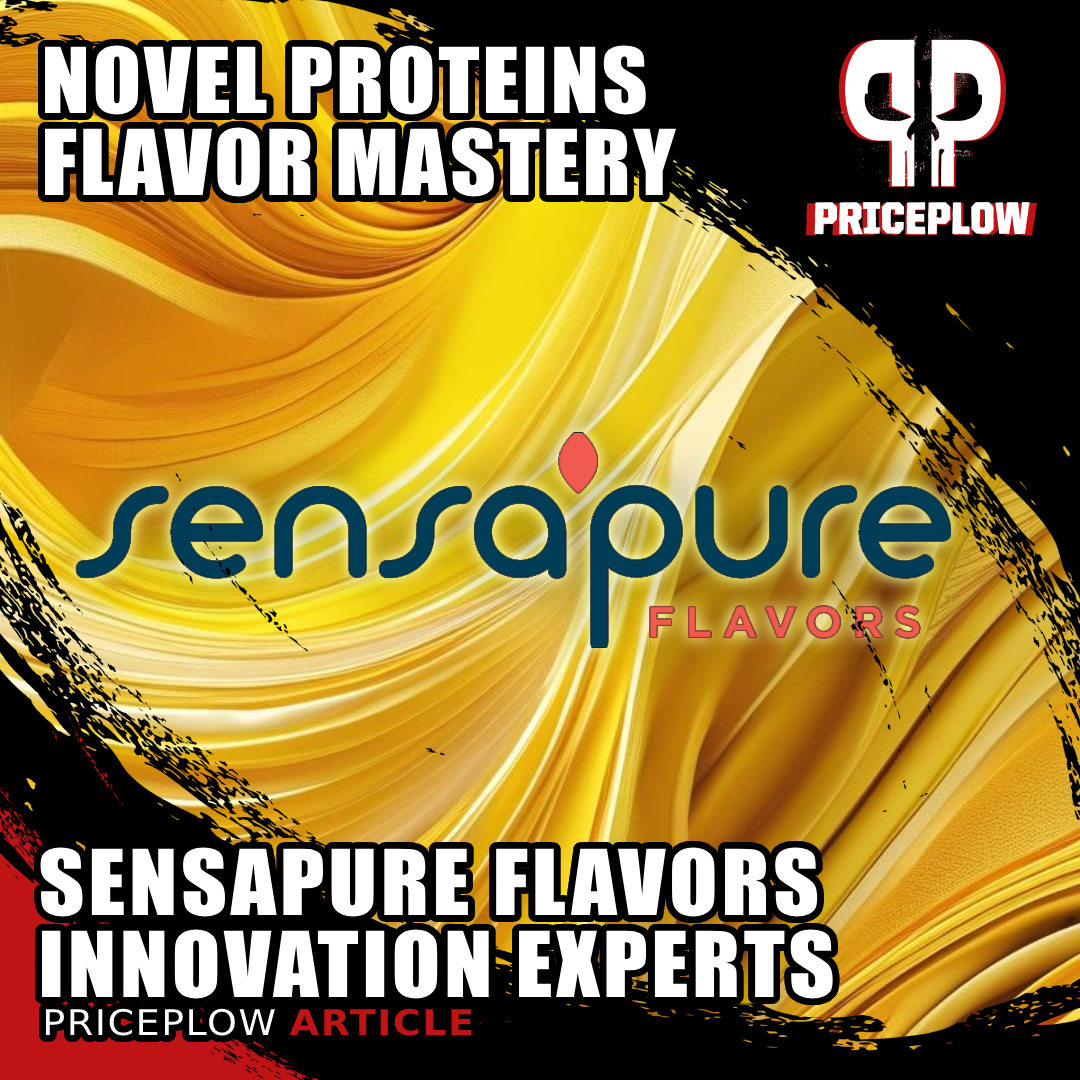
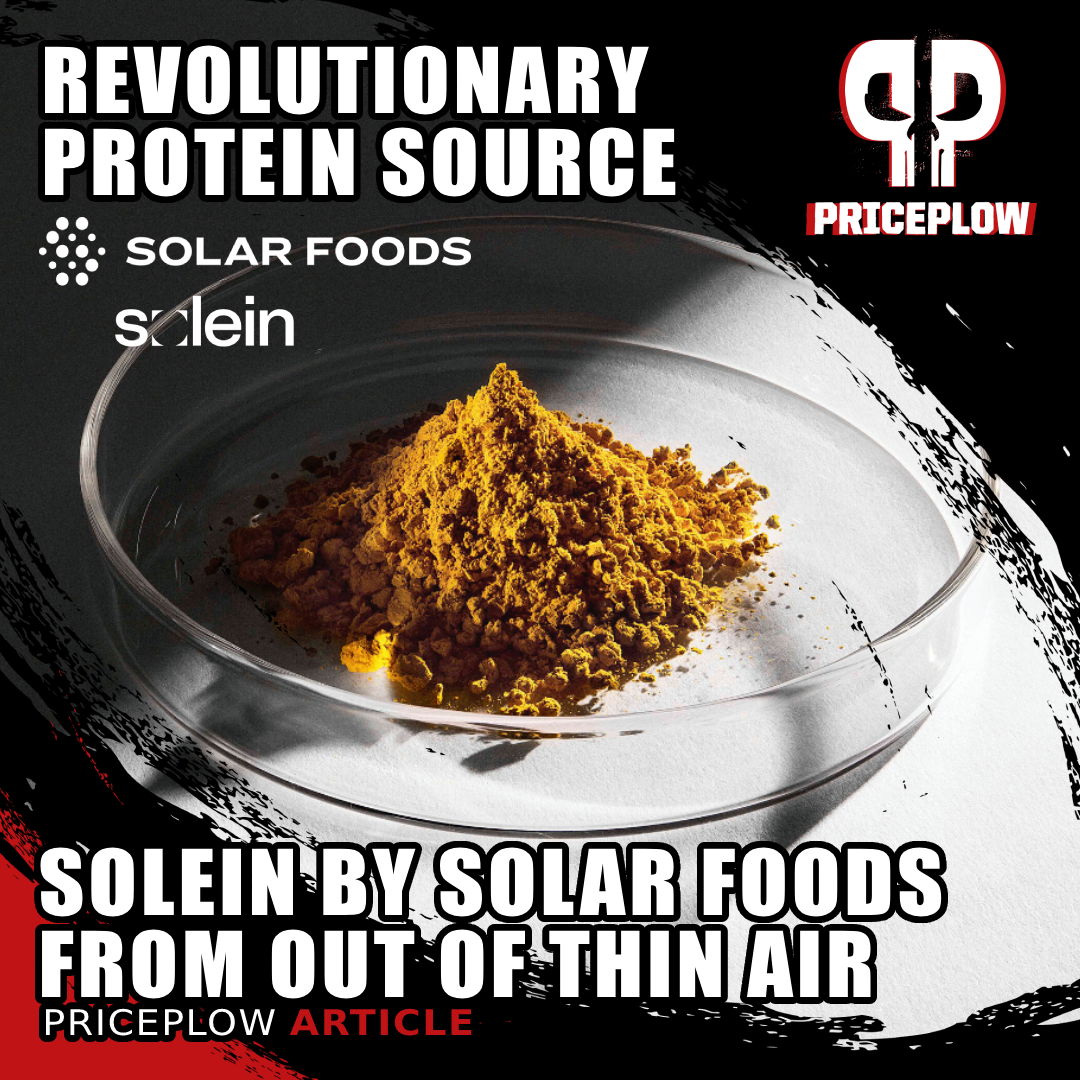

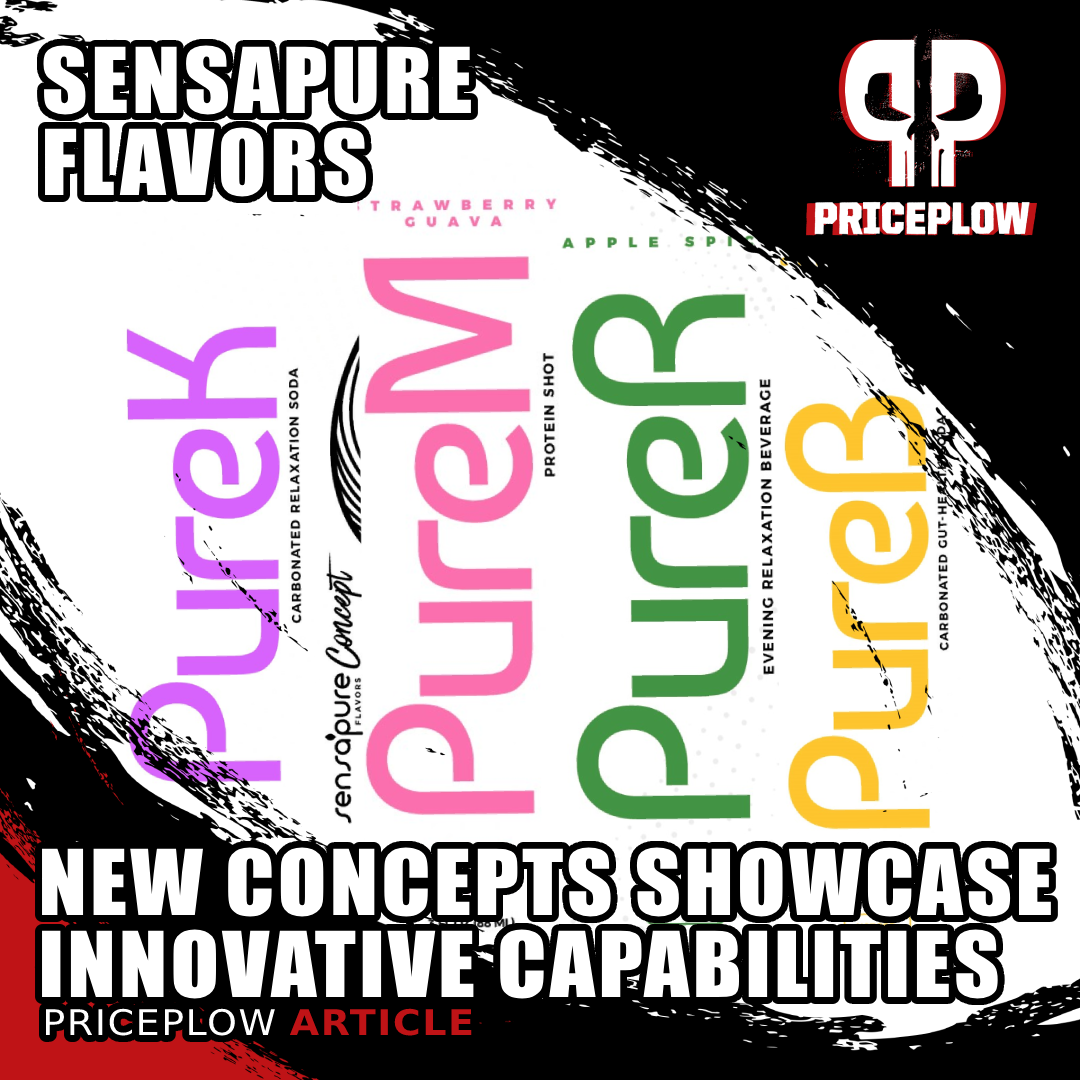




Comments and Discussion (Powered by the PricePlow Forum)